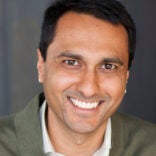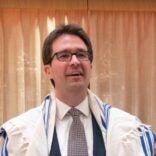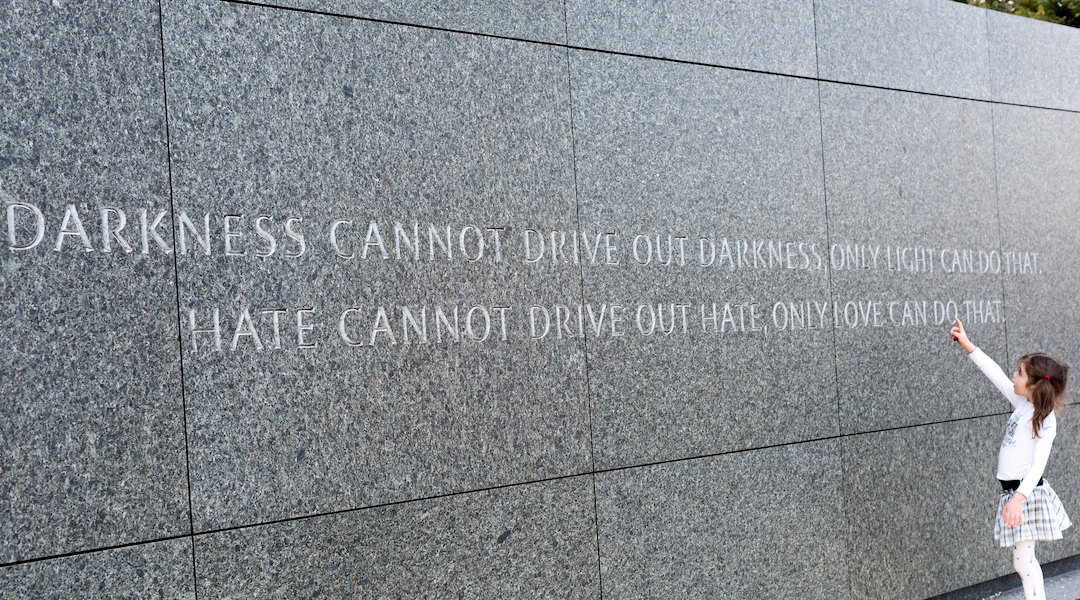(JTA) — In 1957, at Dexter Avenue Baptist Church, the Rev. Dr. Martin Luther King, Jr. delivered words whose wisdom continue to resound today: “For the person who hates, the true becomes false and the false becomes true. That’s what hate does. You can’t see right. The symbol of objectivity is lost. Hate destroys the very structure of the personality of the hater.”
When a weekend meant to commemorate Dr. King was shattered by the hostage-taking at Congregation Beth Israel in Colleyville, Texas, we called upon each other as longtime friends and colleagues to find a better path forward for our respective communities. We feared that hate could disrupt the relationship that we had long shared and held dear.
Because the hostage-taker was a Muslim man apparently intent on freeing a Muslim women convicted on terrorism charges, opportunists are already hard at work exploiting our trauma in order to pit Muslims and Jews against each other. In the spirit of Dr. King, equally embodied in the tireless bridge-building of Rabbi Charles Cytron-Walker of Congregation Beth Israel, we feel called to explore a new blueprint for how we can resist the temptation to allow hate to beget hate. This is but an initial sketch, no doubt with much input needed from lay leaders and clergy from across the Muslim and Jewish communities.
First, we need to change the story. Extremists are of no faith tradition but their own: extremism. We need to stop framing the conversation as community against community, so much as Muslims and Jews together against a common enemy. We need to call out and sideline extremists, leaving them isolated in their own camp. To that end, we suggest reflecting on the hostage-taker at Beth Israel as an extremist from the United Kingdom with heinous goals unbefitting any faith.
Second, we need to tirelessly build bridges among the rest of us. We are all feeling isolated after two years of pandemic. We need to go out of our way to call friends, neighbors and relatives across lines of faith just to reaffirm the significance of relationship. Today, in the wake of Saturday’s trauma, Muslims should call their Jewish friends. Tomorrow, unfortunately, in a world brimming with hate, it may need to be the other way around. The rest of the time, both should call — and call upon — each other.
Third, we need to develop a knowledge and appreciation of each other’s traditions. It is easy to fear an “other” that you do not understand. We need to visit each other’s houses of worship, read each other’s sacred texts, learn how people live out the tenets of their faith and culture, understand how each tradition inspires Jews and Muslims to serve others, and how we all struggle with challenging concepts and ideas in our respective faiths.
Fourth, we need to expand our existing infrastructure of collaboration. The American Jewish Committee’s Muslim-Jewish Advisory Council holds the potential to expand its regional reach and engage hundreds more leaders across the country. Local collaborations, such as that which exists between New York’s Cordoba House and East End Temple, should welcome new partners and look into opportunities for larger-scale programing. College campuses are ideal spaces for interfaith cooperation, especially through projects that combine service, learning and dialogue.
Fifth, we need to build entirely new paths to connection. We are working with Rabbi Benjamin Spratt of Congregation Rodeph Sholom in Manhattan to gather a book group for clergy, so that we can study deeply and reflect upon social issues that we can best address together. We need to establish advocacy coalitions to push together for better governmental monitoring of Islamophobia and the overdue confirmation of Dr. Deborah Lipstadt as U.S. Special Envoy to Combat and Monitor Antisemitism. We need to dream about more Muslim-Jewish community centers and shared spaces for gathering. We need to create a joint fundraising mechanism to seed new ventures and increase resources for grassroots organizations like the Muslim-Jewish Solidarity Committee and the Sisterhood of Salaam Shalom. We have countless common causes, but have underbuilt mechanisms to act upon them.
In honor of Rabbi Cytron-Walker’s heroism and longstanding commitment to interfaith collaboration; in memory of the Dr. King; for the sake of ourselves and our children, we are called to do better. The American Muslim and Jewish communities are vibrant, empowered and open-minded. In the wake of Colleyville, we need to build as never before. Together, we can.
JTA has documented Jewish history in real-time for over a century. Keep our journalism strong by joining us in supporting independent, award-winning reporting.








